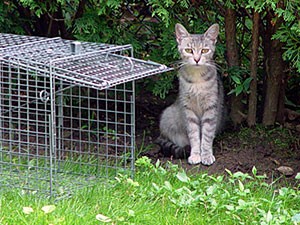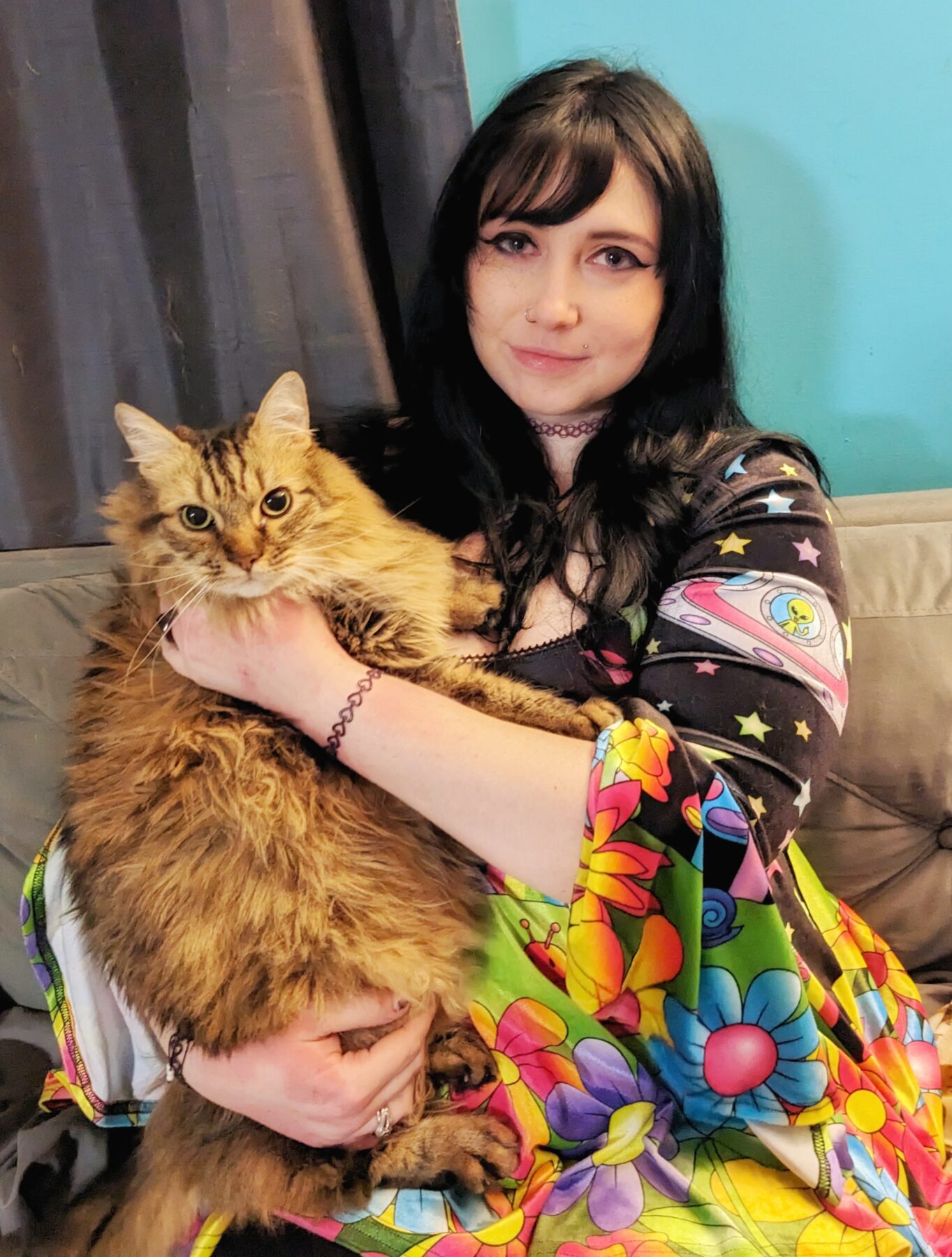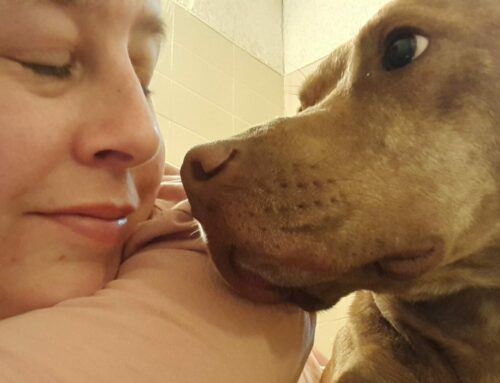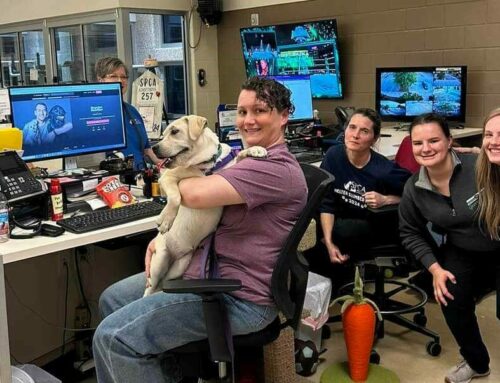By: Emily Garcia, Feline Behaviorist
Feral cats are domestic cats that have reverted to a wild state due to abandonment or being born in the wild. Unlike stray cats, feral cats are not suitable for adoption as they have not been socialized and are often aggressive due to fear of humans. As animal lovers, we understand that it is hard to see animals without homes, fending for themselves, but the majority of cats you see outdoors are feral and their instincts and survival skills are honed for outdoor living, making them ill-equipped to adapt to a life indoors as a pet. Feral cats tend to be independent, elusive, and prefer to live in outdoor environments.
To address the complexities associated with feral cat populations, many animal welfare organizations, including the SPCA Albrecht Center in partnership with the City of Aiken, advocate for Trap-Neuter-Return (TNR) programs. TNR involves a compassionate approach to managing feral cats by humanely trapping them, sterilizing them, and returning them to their original habitats. The TNR program has emerged as a powerful force in feline welfare, endorsed by reputable organizations such as the American Humane Society and the American Society for the Prevention of Cruelty to Animals (ASPCA). It stands as the most humane, effective, and financially sustainable strategy for addressing free-roaming cat populations.
 The primary objective of TNR is to stabilize feral cat colonies. Feral cats have an astonishing reproductive potential. Unfixed female cats can have an average of three litters per year, each containing 4 to 6 kittens. Left unfixed, a single female cat and her offspring can produce a staggering total of 4,948 kittens within a seven-year period.
The primary objective of TNR is to stabilize feral cat colonies. Feral cats have an astonishing reproductive potential. Unfixed female cats can have an average of three litters per year, each containing 4 to 6 kittens. Left unfixed, a single female cat and her offspring can produce a staggering total of 4,948 kittens within a seven-year period.
Recognizing the urgency of this issue, shelters across the country have taken proactive measures by implementing TNR initiatives. Through these programs, feral cats are sterilized, preventing the birth of more kittens and effectively controlling population growth. This stabilization of colonies not only alleviates the burden on shelters and rescues but also creates a healthier and more sustainable environment for the cats themselves. By curbing the uncontrolled breeding of feral cats, TNR efforts prove to be an essential tool in ensuring the long-term well-being of these animals and their habitats.
The impact of the TNR program extends beyond population control. Through spaying/neutering, vaccinations, and necessary medical treatments, TNR significantly improves the lives of feral cats. By addressing their reproductive capabilities and ensuring their overall health, these cats experience reduced stress, improved physical well-being, and an increased chance of a longer and healthier life. TNR acknowledges the importance of their existence while minimizing the negative impacts associated with uncontrolled breeding and inadequate healthcare.
In contrast to traditional methods such as euthanasia, which have proven to be ineffective and unsustainable, TNR provides a compassionate and practical solution. By implementing TNR, shelters reduce the number of kittens being born and ensure that fewer unwanted cats end up in shelters, thereby reducing euthanasia rates. This program addresses the root causes of population growth and establishes a sustainable model for long-term cat population management.
The benefits of the TNR program extend beyond the welfare of cats alone. By effectively controlling feral cat populations, TNR addresses community concerns. Unchecked cat populations can lead to nuisance behaviors such as yowling, fighting, marking, and territory disputes. TNR mitigates these issues, creating a harmonious environment for cats and humans. Moreover, TNR helps safeguard local wildlife by managing the impact of cats on the ecosystem, promoting a balanced and sustainable coexistence.
TNR programs are a vital initiative that exemplifies the organization’s commitment to animal welfare and community well-being. TNR Programs pave the way for a future where cats and humans can coexist harmoniously, embodying compassion, sustainability, and shared responsibility for the well-being of all living beings.
If you have cats in your community that you are interested in TNRing, please call (803) 648-6863 if the cat is located in the City of Aiken, or (803) 642-1537 if they are in Aiken County for more information.

Emily Garcia, Feline Behaviorist for the SPCA Albrecht Center
Emily Garcia is the Feline Behaviorist at the SPCA Albrecht Center, where she has been making a positive impact in cats’ lives since 2013 by dedicating her career to understanding and improving the lives of cats. Beyond her professional role, Emily’s personal life is equally filled with furry companions. She shares her home with the love of dogs Zuul, Buddy, Munky, and Genie; cats Maxamillion, Maxine, Nugget, and Mozzarella; and her husband, Jevon.
Emily’s dedication to animal welfare extends far beyond her work as a Feline Behaviorist. She is an advocate for responsible pet ownership, spreading awareness about the needs of cats and the importance of providing them with nurturing environments. Her guidance and expertise give countless cats a second chance at happiness and a forever home.




